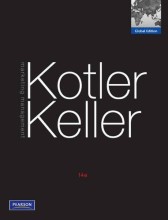Summary: Organizational Behavior | 9780132834872 | Stephen P Robbins, et al
- This + 400k other summaries
- A unique study and practice tool
- Never study anything twice again
- Get the grades you hope for
- 100% sure, 100% understanding
Read the summary and the most important questions on Organizational Behavior | 9780132834872 | Stephen P. Robbins; Timothy A. Judge
-
1 chapter 1
This is a preview. There are 1 more flashcards available for chapter 1
Show more cards here -
What means Soft skills:
working, communicating effectively, leadership and cultural awareness. -
Henri Fayol wrote that all managers perform five management functions, but Today, we have condensed these to four. Give them both
- planning,
organizing, commanding, coordinating and controlling.
- organizing, leading and controlling.
- planning,
organizing, commanding, coordinating and controlling.
-
1.2 What managers do
This is a preview. There are 4 more flashcards available for chapter 1.2
Show more cards here -
What are the three types of roles that managers can execute?
1. interpersonal 2. informational 3. decisional -
What are the four managerial activities according to Fred Luthans?
1. traditional management 2. communication 3. human resource management 4. networking -
What are some of the insights from Fred Luthans research into the difference between effective vs succesful managerial activities?
Succesful managers give almost the opposite emphasis to traditional management, communication, hrm and networking as do effective managers. This challenges the assumption that promotion is based on performance rather than on politics and networking in getting ahead in an organization. -
1.4 Complementing intuition with systematic study
This is a preview. There are 2 more flashcards available for chapter 1.4
Show more cards here -
What is systematic study?
looking at relationships, attempting to attribute causes and effects and drawing conclusions based on scientific evidence -
1.6 Few absolutes in organizational behavior
This is a preview. There are 1 more flashcards available for chapter 1.6
Show more cards here -
Why do few absolutes exist in OB?
Because human beings are complex, and few, if any, simple and universal principles explain organizational behavior. People behave differently in situations. -
1.7 Challenges and Opportunities for OB
This is a preview. There are 1 more flashcards available for chapter 1.7
Show more cards here -
What challenges and opportunities exist for OB?
1. responding to economic pressures of 08 2. responding to globalization 3. managing workforce diversity 4. improving customer service 5. improving people skills 6. stimulating innovation and change 7. coping with temporariness 8. working in networked organizations 9. helping employees balance work-life conflicts 10 creating a positive working environment. 11. improve ethical behavior -
What is positive organizational scholarship?
area of OB that concerns how organizations develop human strength, foster vitality and resilience and unlock potential -
1.8 Developing an OB model
This is a preview. There are 5 more flashcards available for chapter 1.8
Show more cards here -
What is a model?
an abstraction of reality, a simplified representation of some real-world phenomenon.
- Higher grades + faster learning
- Never study anything twice
- 100% sure, 100% understanding
Topics related to Summary: Organizational Behavior
-
Attitudes and behavior - job satisfaction
-
Attitudes and behavior - employee responses to dissatisfaction
-
Emotions & Moods - What are emotions and moods?
-
Personality and values - What is personality?
-
Personality and values - Values
-
Personality and values - Generational values
-
Perception and individual decision making
-
Motivation concepts - Early theories of motivation
-
Motivation concepts - Goals setting theory
-
Motivation: from concepts to applications - Employee involvement
-
Motivation: from concepts to applications - Using rewards to motivate employees































